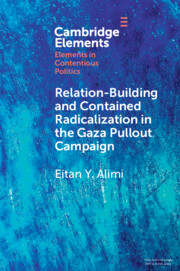Refine search
Actions for selected content:
1 results

Relation-Building and Contained Radicalization in the Gaza Pullout Campaign
-
- Published online:
- 03 December 2024
- Print publication:
- 27 February 2025
-
- Element
- Export citation
